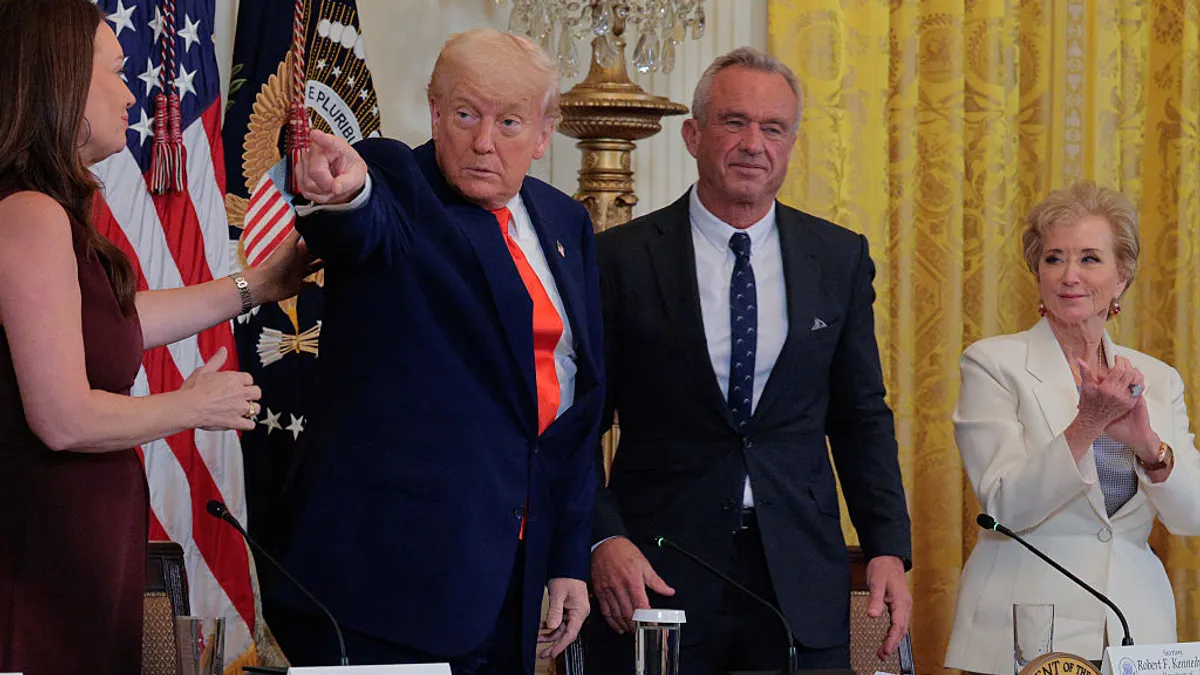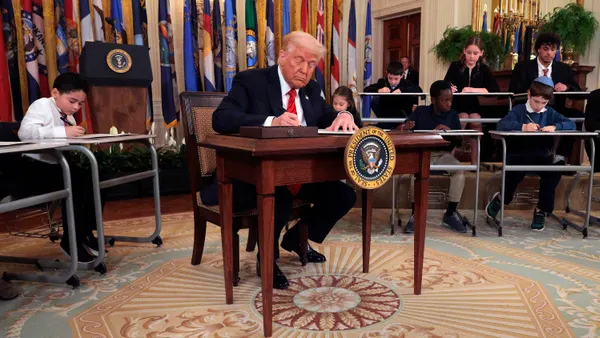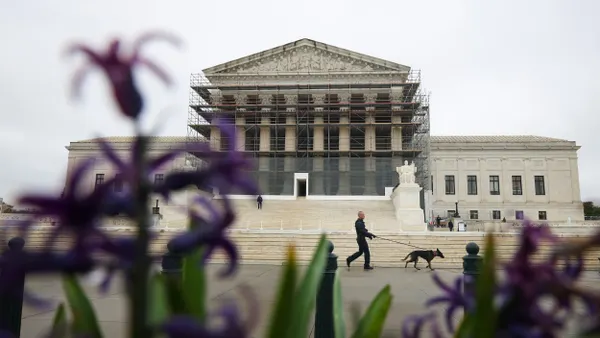As rumors swirled that special education programs could soon be leaving their longtime home at the U.S. Department of Education, a spokesperson confirmed on Tuesday that the agency is "exploring additional partnerships" with other federal agencies to support this programming.
Madi Biedermann, deputy assistant secretary for communications, in an email to K-12 Dive, did not detail what federal agencies the Education Department was seeking to partner with, but emphasized that any agreement would be made "without any interruption or impact on students with disabilities." Biedermann made clear that no agreement has been signed.
Biedermann added that U.S. Education Secretary Linda McMahon "is fully committed to protecting the federal funding streams that support our nation’s students with disabilities," even as McMahon's goal is to “put herself out of a job by shutting down the Department of Education and returning education to the states."
The Trump administration has said for several months that it wants to move special education out of the Education Department. Both President Donald Trump and McMahon have named the U.S. Department of Health and Human Services as a potential partner in overseeing federal special education activities.
This latest development comes as the Trump administration continues its quest to downsize the Education Department. Staff buy-outs, early retirements and mass firings, including one on Oct 10 during the federal government shutdown, has left the agency with about half of the workforce it began the year with.
Most of the employees within the Education Department's Office of Special Education and Rehabilitative Services, about 121 people, were fired on Oct. 10 while many were furloughed by the shutdown. About 465 employees across the Education Department were let go, including in the Office of Elementary and Secondary Education and the Office for Civil Rights.
More than 4,000 federal employees across 30 federal agencies, including at the Education Department, were expected to be laid off. A federal judge on Oct. 15 ordered the Trump administration to immediately cease the mass firing of federal employees during the shutdown.
The Trump administration's shrinking of the federal government footprint, including the desire to shutter the Education Department, is aimed at reducing federal bureaucracy and giving states and districts more control over how they spend federal taxpayer money.
Several special education and public school advocacy groups, however, are cautioning that without federal oversight, monitoring and technical assistance, the burdens for complying with the Individuals with Disabilities Education Act — the nation's special education law that turns 50 next month — will fall to states and districts.
The lack of federal support from experts in OSERS and its Office of Special Education Programs, could lead to more procedural mistakes, added compliance burdens on teachers, delays in evaluations for special education services for students, and gaps in data that informs improved practices, said David Bateman, a special education consultant and professor emeritus at Shippensburg University.
Bateman, speaking during a Tuesday webinar hosted by Parallel Learning, a company that supports special education services, and attended by school district leaders, emphasized that although major changes are occurring at the federal special education level, schools, districts and states still need to adhere to IDEA rules. They include providing individualized supports and services to qualified students with disabilities, he said.
"The regulations that we have for IDEA and Section 504 remain in law," he said. "Tell your teachers this.”
Correction: An earlier version of this story misstated David Bateman's current title. He is a special education consultant. The story has been updated.














